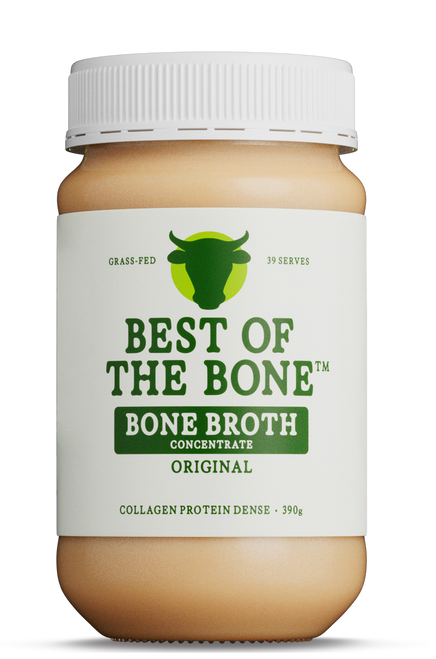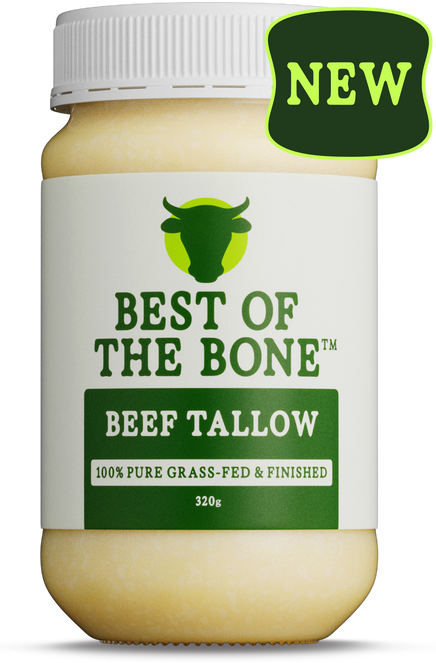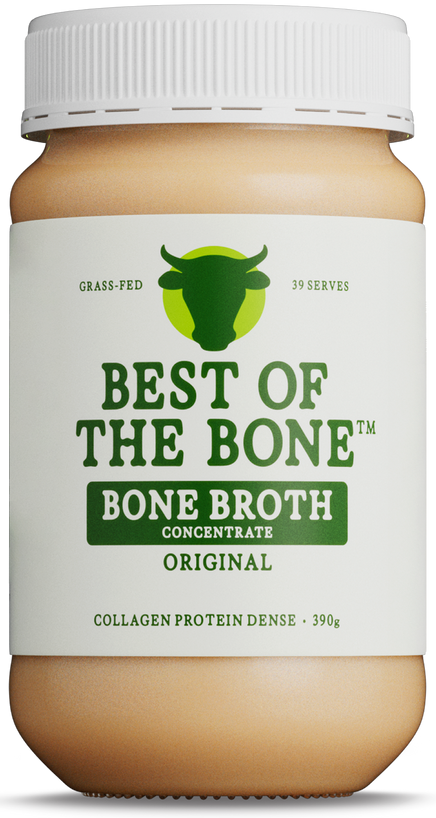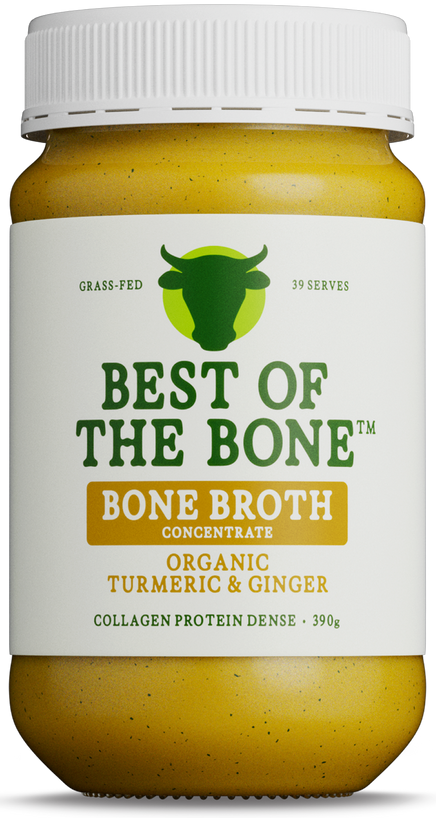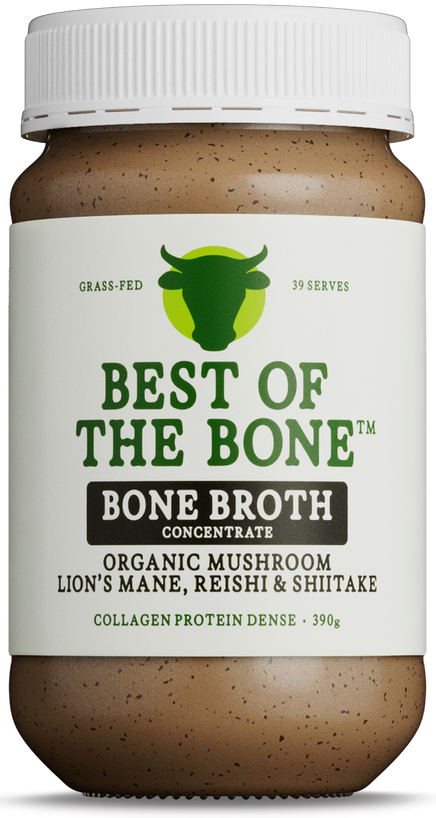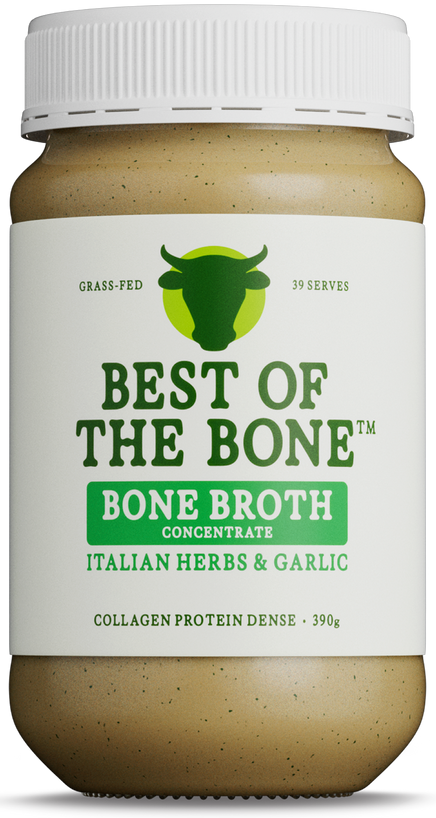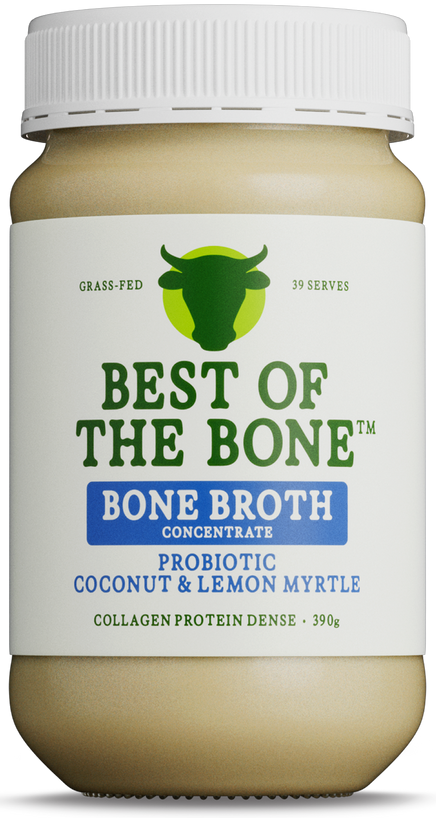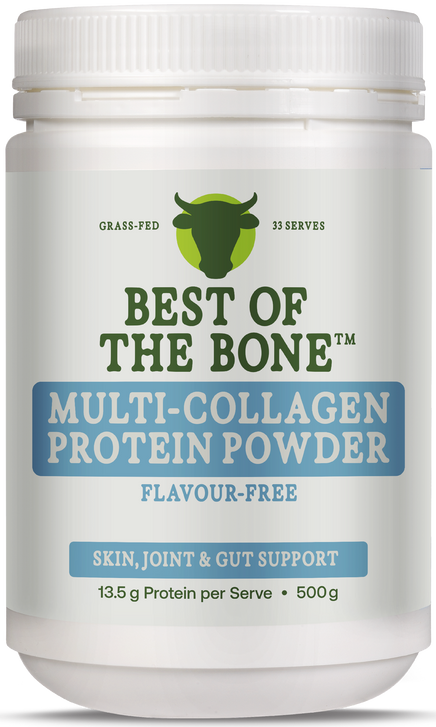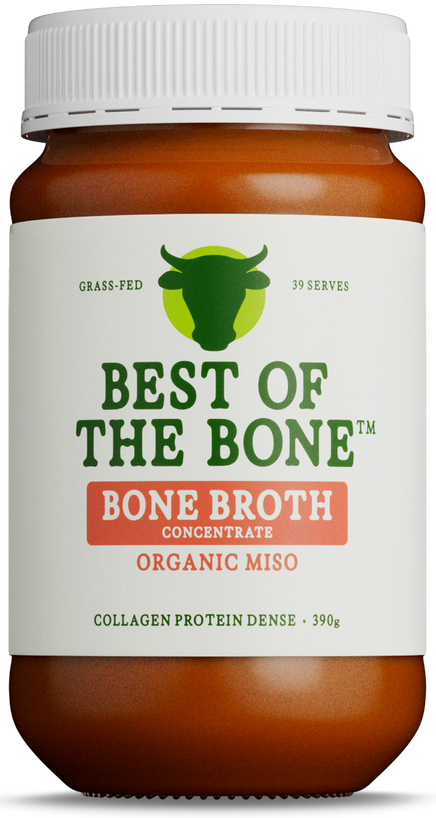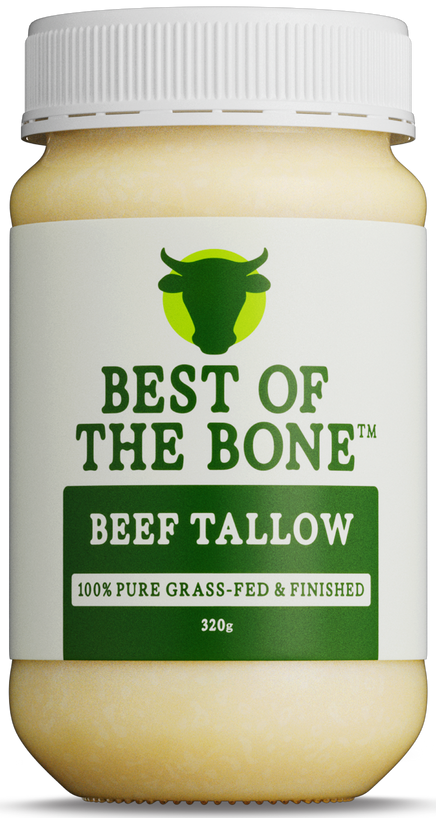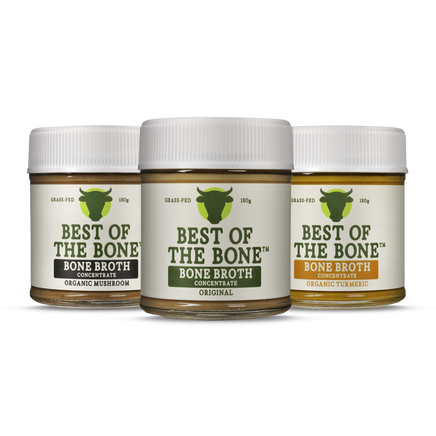Gut Health Q&A with Charley: From Bacteria to Bloating
Charley from Holistic Gut Health Answers your Biggest questions
As a Functional Health Coach specialising in gut health who’s worked with thousands of Aussies, Charley’s here to help us navigate better gut health, holistically. He’s been sipping away on our bone broth for many years, so we’re over-the-bone to bring his knowledge to our Bonehead community. Expect to see him myth-busting, sharing hard truths about modern diets, and answering your gut health questions.
Best foods for bacterial overgrowth
It depends on where the overgrowth is stomach (like H. pylori), small intestine (SIBO), or large intestine. The type of bacteria also matters. Foods with mild antimicrobial properties may help, such as MCT oil or coconut oil, manuka or raw honey, green tea, and pomegranate.
More important, though, is what you don’t eat. For SIBO, reducing FODMAP intake can make a big difference. Refined sugars, starches, probiotic-rich, or histamine-rich foods may also worsen symptoms. It’s individual, but those are easy starting points.
Easiest wins for gut health
Supplements can help, but the easiest wins often come from everyday habits. One of the most overlooked? Eating in a relaxed state and chewing your food properly, this alone can transform digestion.
Other simple swaps: choose organic or ancient grains over conventional wheat, replace seed oils with healthy fats, cut back on eating out and alcohol or switch to lighter options like clear spirits with soda or a good quality red wine, and prioritise sleep and stress management. These basics have knock-on effects for gut and overall health.
Are parasites in Australia common?
Parasites often get hyped online, but they’re not always the problem people think. Globally, many people carry parasites, but not all are harmful. In developed countries like Australia, the risk is much lower, though some can be picked up while travelling or locally. Parasites aren’t always the cause of gut symptoms, and in some cases they may not cause problems at all. Cleansing without reason usually does more harm than good.
Struggling with adult acne? Taking a holistic approach
Acne often ties back to gut health; low stomach acid, SIBO, reduced good bacteria, or leaky gut. Supporting the gut is a great first step.
Other factors: swap high omega-6 seed oils for omega-3s (fatty fish, cod liver oil) and support blood sugar balance with things like apple cider vinegar or berberine. A personalised approach works best, but gut health is usually at the core.
Are certain cooking methods better for gut health?
Cooking can make food easier or harder to digest depending on the person.
- Slow cooking meats makes them easier to digest, but also higher in histamine.
- Soaking or activating nuts, seeds, and grains reduces antinutrients.
- Raw vegetables may irritate sensitive guts, so cooking helps.
Cookware also matters: avoid non-stick, and choose ceramic, cast iron, or stainless steel, though nickel in stainless can bother some. It’s not about one “right” method, just what works for your gut.
Stress and gut health:
Stress is one of the biggest drivers of gut problems. Helpful practices vary—meditation, journaling, breathwork, or walking in nature. Saying no to toxic environments or overcommitments is just as important. Prioritising sleep and recovery is key. There’s no one-size-fits-all, but managing stress is central to gut healing.
Is dairy and gluten harming or helping my gut?
Gluten: For non-celiacs, gliadin (a protein in gluten) may be more problematic than gluten itself. Opt for lower-gliadin grains like spelt or einkorn, and choose organic where possible.
Dairy: Quality matters. Many with gut issues struggle with dairy, but high-quality dairy can still be nutrient-rich if tolerated.
How do I know if my gut health is improving?
Look to symptoms first: less bloating, more regular digestion, easier tolerance of foods. Other positive signs include better energy after meals, improved mental clarity and mood, and the ability to eat a wider range of foods.
Healing takes time, especially if issues have been present for years, so expect progress over months, not days. Blood work can provide insights, but combining data with symptom tracking is most effective.
Clear signs of poor gut health:
Late-stage signs include bloating, constipation, and food sensitivities. Early signs are often non-digestive, such as fatigue, brain fog, low mood, skin issues, joint pain, and poor immunity. If you’ve tried other health fixes without results, gut health could be the missing link. Autoimmune conditions are also strong indicators.
Do whole foods support the microbiome?
Yes, whole foods reduce inflammation and nourish the microbiome.
Go for variety: aim for 30 or more different plant foods per week, and ideally 100 or more total food types across your diet. The broader the diet, the stronger the microbiome. Sometimes restriction is needed short term, but the goal is always diversity long term.
Kids with eczema since birth linked to histamine foods?
Eczema can be linked to histamine, but also to gut health, immunity, environment, and genetics. Helpful supports for kids can include cod liver oil (vitamin A and omega-3), colostrum in small doses, nutrient-dense foods, bone broth, or probiotics if tolerated, vitamin D from sunlight, and topical supports like tallow balm. Even if eczema started at birth, gut and immune support can make a big difference.

